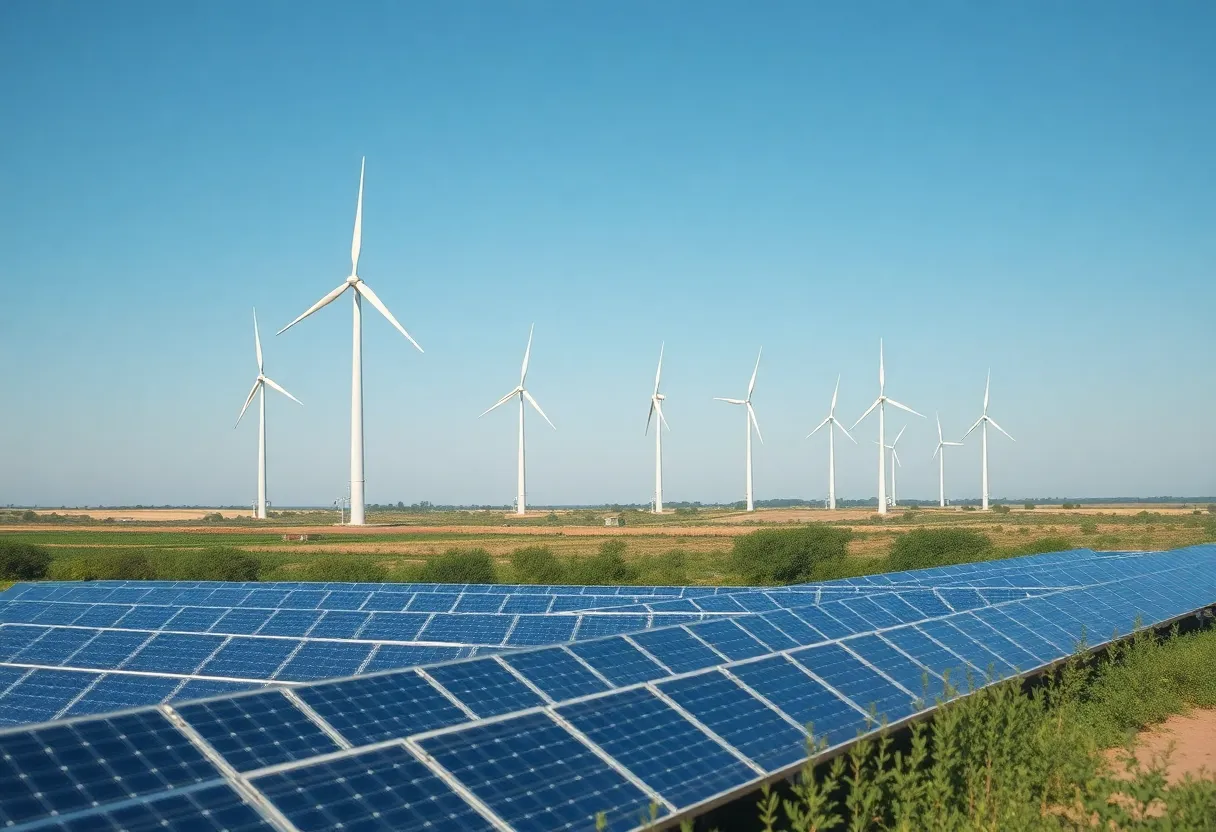

Texas Renewable Energy Recycling
Texas is addressing the challenges in renewable energy recycling with House Bill 3229. This legislation aims to enhance management practices for recycling companies, requiring financial assurance and transparency in operations. The bill reflects a commitment to sustainability as the state seeks to ensure responsible handling of materials from solar and wind power machinery, fostering a greener future for the industry. Key players, like WM, are also investing significantly in recycling initiatives, underscoring the growing importance of recycling within the renewable energy sector.
Texas is set to implement new legislation aimed at improving the management of renewable energy recycling companies. House Bill 3229, recently passed by both the Texas House and state Senate, is now poised for the signature of Governor Greg Abbott. This legislation addresses significant issues in the existing recycling sector, which has faced financial and managerial challenges leading to business failures.
The move comes in response to alarming statistics highlighting mismanagement within the recycling industry. For instance, near Sweetwater, Texas, an analysis revealed a “30-acre graveyard of windmill blades” resulting from a recycling company’s inability to fulfill its obligations. The bill seeks to prevent further failures by enforcing stricter management practices and financial responsibility among recycling entities involved in the renewable energy sector.
House Bill 3229 mandates that renewable recycling facilities provide financial assurances to cover 125% of the estimated costs for recycling and disposal activities. This new rule is set to align recycling companies with the already established requirements that companies managing wind and solar power sites must meet to secure the dismantling and restoration of land at the end of lease agreements. Additionally, the bill requires these recycling facilities to submit annual reports to the Texas Commission on Environmental Quality detailing the materials they handle, the timelines for disposal, and the associated costs.
A significant player in the recycling landscape, WM, a Houston-based company, is making substantial investments in sustainability. With a commitment of $3 billion aimed at fostering sustainability growth by 2026, WM is set to enhance its recycling and renewable natural gas (RNG) projects significantly. As part of this investment strategy, WM plans to open four new recycling and RNG facilities this April, which will contribute to a total of 39 new or upgraded recycling facilities and 20 new WM-owned RNG facilities nationwide.
Moreover, WM’s Mesquite Creek Recycling Facility in New Braunfels, Texas, will emerge with enhanced capabilities, being able to process 144,000 tons per year using advanced technology to increase material recovery efficiency. Another facility, WM’s Fairless RNG plant near Philadelphia, is touted as the largest of its kind, capable of converting captured landfill gas into renewable natural gas.
The push for better recycling practices is not just about company profits; it is also aligned with broader industry goals. The International Renewable Energy Agency has indicated that by 2030, the cumulative value of recoverable materials from end-of-life solar panels will reach approximately $450 million globally. This recycling initiative not only seeks to recover valuable resources but also to divert waste from landfills, thus preserving the environment.
However, challenges loom large for the solar industry’s transition to utilizing recycled materials over newly sourced virgin materials. The industry recognizes the importance of higher standards and regulations to foster effective recycling practices. Educational outreach initiatives are deemed essential to promote responsible recycling solutions and discourage landfill disposals. Innovative organizations such as SolarPanelRecycling.com are working collaboratively with utilities and industry bodies to champion recycling initiatives and advocate for the exclusion of solar equipment from landfills.
Furthermore, there is an increasing market demand for recycled materials, driven by manufacturers who are eager to incorporate raw commodities derived from recycling processes. To meet this demand, strategic partnerships are blossoming between companies, universities, and industry groups, aimed at refining recycling standards and practices.
As Texas moves toward a more rigorous regulatory environment for renewable energy recycling, the implications extend beyond state borders, influencing national conversations around sustainability and circularity in the renewable energy sector. Major companies and utilities are increasingly seeking partnerships to ensure a steady supply of recycled materials and to promote the vital concepts of circular economy within the solar industry.
News Summary In Hillsboro, Texas, the Blue Ox Axe Throwing venue has shifted to a…
News Summary A recent survey highlights the resilience of Texas investors during market fluctuations, revealing…
News Summary Texas Governor Greg Abbott has signed five bills aimed at easing the challenges…
News Summary The Texas Business Court has issued significant rulings on jurisdictional requirements involving 'qualified…
News Summary The inaugural Latina Legacy Luncheon in Austin recognized the achievements of Latina leaders…
News Summary Cedar Park is buzzing with live music throughout June, appealing to a diverse…